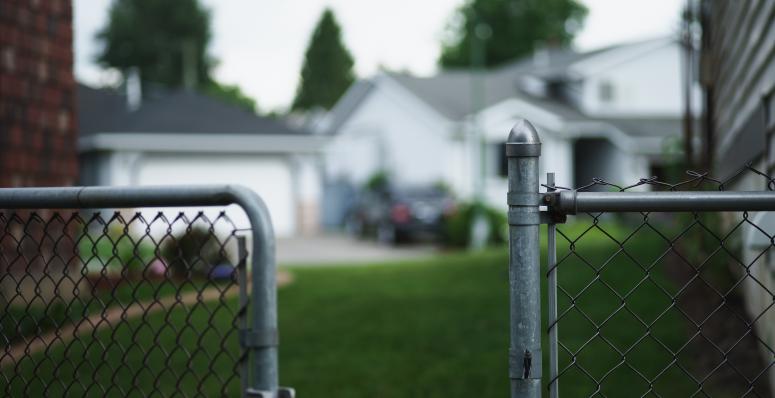- Mar 11, 2015
- 100,713
- 107,612
- 3,645
Blacks were Republicans for 100 years before many of us left the Republican Party. We left because the party didn't do a damn thing to stop Jim Crow while expectiing blacks to vote republican forever because of Abraham Lincoln. But we got tired of nothing and switched parties.
The conservative plantation theory holds that African Americans support the Democratic party in exchange for welfare benefits and other handouts, that the Democratic party cultivates black welfare dependency in order to keep black voters firmly in their camp, and that the liberal establishment through either incompetence or cynical calculation frustrates the aspirations of black Americans in critical areas such as education, family life, crime, and economic mobility.
If Democrats were buying votes with welfare benefits, one would expect support for the Democratic party to be less pronounced among high-income blacks and more pronounced among low-income whites. The opposite is the case. Wealthy African Americans, who have no financial stake in welfare benefits other than being taxed to pay for them, are politically very similar to less wealthy African Americans. By some measures, wealthy blacks are more liberal than poor blacks.
Which is not to say that black voters are not keenly interested in the welfare state, economic intervention, redistributive taxation, and the rest of the Democrats’ dependency agenda. They are. As I have shown at some length, it was the New Deal rather than the Democrats’ abrupt about-face on civil rights that attracted black voters. The last Republican presidential candidate to win a majority of the black vote was Herbert Hoover, and the majority of black voters were Democrats by the 1940s — a remarkable fact, given that the Democrats were still very much the party of segregation at that time, with future civil-rights enthusiast Lyndon Johnson fighting laws against lynching. African Americans remain more intensely supportive of New Deal programs such as Social Security and the minimum wage than are whites, even when their personal financial situations ensure that they are unlikely ever to earn the minimum wage or depend upon Social Security.
Conservatives should ask ourselves why that is. Not because it will help the Republican party win more black votes — that is an unlikely outcome — but because our first loyalty is to reality. Across income groups, African Americans are on balance less enthusiastic about free-market economic policies than are Anglo Americans; there is a rich tradition of entrepreneurship and self-improvement in black culture, but that does not translate into sympathy with the traditional conservative rhetoric on these subjects; and, shockingly, when asked by pollsters about their attitudes toward “capitalism” and “socialism” — using the actual words — more African Americans expressed positive views of socialism than of capitalism.
It is not surprising that blacks have less faith in the productive and transformative power of the free-market economy than do whites. Black Americans were for some centuries treated as an economic commodity themselves and were systematically excluded from full participation in the economy for generations after that.

 www.nationalreview.com
www.nationalreview.com
This conservative speaks to the reality off what blacks have faced instead of the rhetoric we see here. Telling us that we are on a plantation because we vote against extremism is not going to get blacks to run to the republican party in large numbers.
This thread is not about slavery so don't bring it up. This is about the history and present of blacks in politics and specifically why we vote Democrat in masse.
The conservative plantation theory holds that African Americans support the Democratic party in exchange for welfare benefits and other handouts, that the Democratic party cultivates black welfare dependency in order to keep black voters firmly in their camp, and that the liberal establishment through either incompetence or cynical calculation frustrates the aspirations of black Americans in critical areas such as education, family life, crime, and economic mobility.
If Democrats were buying votes with welfare benefits, one would expect support for the Democratic party to be less pronounced among high-income blacks and more pronounced among low-income whites. The opposite is the case. Wealthy African Americans, who have no financial stake in welfare benefits other than being taxed to pay for them, are politically very similar to less wealthy African Americans. By some measures, wealthy blacks are more liberal than poor blacks.
Which is not to say that black voters are not keenly interested in the welfare state, economic intervention, redistributive taxation, and the rest of the Democrats’ dependency agenda. They are. As I have shown at some length, it was the New Deal rather than the Democrats’ abrupt about-face on civil rights that attracted black voters. The last Republican presidential candidate to win a majority of the black vote was Herbert Hoover, and the majority of black voters were Democrats by the 1940s — a remarkable fact, given that the Democrats were still very much the party of segregation at that time, with future civil-rights enthusiast Lyndon Johnson fighting laws against lynching. African Americans remain more intensely supportive of New Deal programs such as Social Security and the minimum wage than are whites, even when their personal financial situations ensure that they are unlikely ever to earn the minimum wage or depend upon Social Security.
Conservatives should ask ourselves why that is. Not because it will help the Republican party win more black votes — that is an unlikely outcome — but because our first loyalty is to reality. Across income groups, African Americans are on balance less enthusiastic about free-market economic policies than are Anglo Americans; there is a rich tradition of entrepreneurship and self-improvement in black culture, but that does not translate into sympathy with the traditional conservative rhetoric on these subjects; and, shockingly, when asked by pollsters about their attitudes toward “capitalism” and “socialism” — using the actual words — more African Americans expressed positive views of socialism than of capitalism.
It is not surprising that blacks have less faith in the productive and transformative power of the free-market economy than do whites. Black Americans were for some centuries treated as an economic commodity themselves and were systematically excluded from full participation in the economy for generations after that.

The Plantation Theory | National Review
Cornel West is a very smart man who has some very dumb opinions, but when he’s feeling froggy he can be a hoot. In a recent interview, Professor West mocked Al Sharpton for playing the odalisque in…
This conservative speaks to the reality off what blacks have faced instead of the rhetoric we see here. Telling us that we are on a plantation because we vote against extremism is not going to get blacks to run to the republican party in large numbers.
This thread is not about slavery so don't bring it up. This is about the history and present of blacks in politics and specifically why we vote Democrat in masse.

